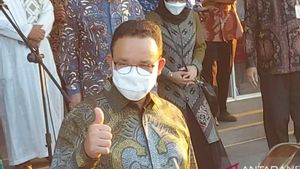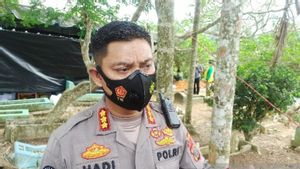JAKARTA - Human rights activist and lecturer at the Jentera Indonesian Law College (STH), Asfinawati, views that the lack of literacy about slavery causes Indonesian people to become insensitive or sensitive when this happens around them.
“Indonesia does not have literacy about slavery, both modern slavery, and similar practices. Therefore, we become insensitive if it happens around us," said Asfinawati when she was a resource person in a public study entitled "Human Cage: Modern Slavery Practices?" which was broadcasted live on the ILUNI FHUI YouTube channel, quoted by Antara, Saturday 19 February.
Furthermore, Asfinawati also explained a number of things about slavery that the public needed to know.
First, a new form of slavery. These forms of slavery, said Asfinawati, were the result of an identification carried out by the Working Group on Slavery of the United Nations (UN) in 1975.
The new forms of slavery are debt bondage that often occurs in migrant workers, slavery, child labor or child slavery, trafficking in persons and human organs, and sexual slavery.
“Then, there is also the involvement of children in armed conflicts which we never thought would enter into slavery practices. Then, there is child trafficking, forced marriage or the sale of brides, exploitation of prostitution, and migrant workers," said Asfinawati.
SEE ALSO:
Next in 2017, Asfinawati continued, the United Nations issued a special report related to contemporary forms of slavery.
Some of the issues covered in the report are traditional slavery, forced labor, debt bondage, working and being unable to own or sell their labor, and children in slavery.
In addition, there is also domestic work or contracts that place people in situations of slavery, sexual slavery, early or forced marriage, and forms of servitude in marriage.
Of all the contemporary forms, Asfinawati said that debt bondage is one of the most common modes of slavery.
It is also said that the element of slavery that needs to be understood by the community is the revoking of the rights inherent in a person, either partially or completely.
The English, Chinese, Japanese, Arabic, and French versions are automatically generated by the AI. So there may still be inaccuracies in translating, please always see Indonesian as our main language. (system supported by DigitalSiber.id)
















